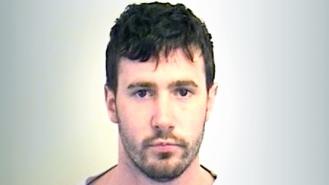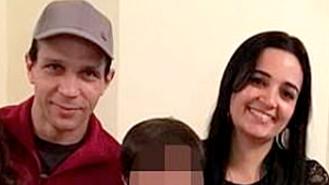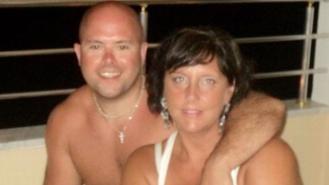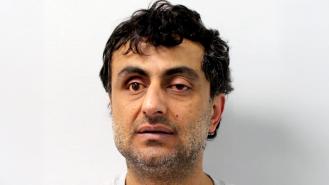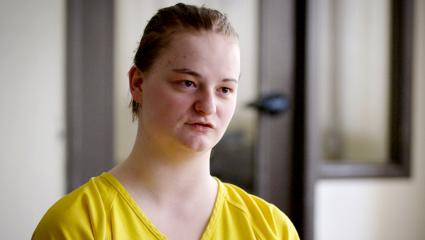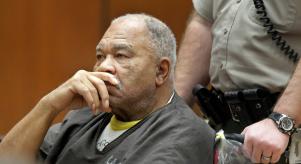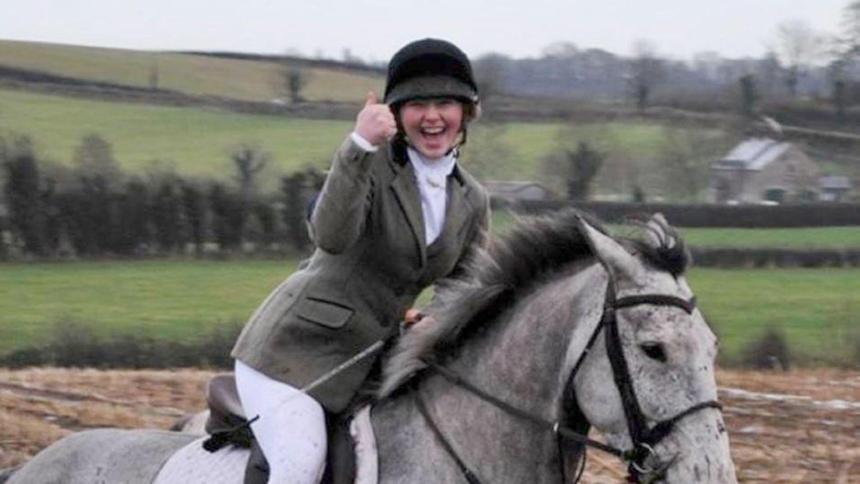
Katie Simpson: The death of a showjumper
Coercive control is one of the most insidious forms of psychological abuse, slowly destroying a person's sense of self and isolating them from loved ones.
Unfortunately, it’s something 21-year-old Katie Simpson knew all too well. The promising show jumper from County Londonderry was found dead in suspicious circumstances in August 2020. Her death was initially ruled a suicide — but there was more to the story than meets the eye.
In this article, Crime+Investigation takes a closer look at the details of the case, including how systemic failures by the Police Service of Northern Ireland (PSNI) jeopardised the investigation.
Remembering Katie
'Katie loved her family and was loved by us all. She was crazy about horses, Country and Western music, going to the beach and being with her friends. She was hardworking, brave, feisty and stood up for herself. She was full of fun and mischief.'
These words were spoken by Katie's aunt at a candlelight vigil organised by Foyle Women's Aid in 2024 to honour several women who had tragically lost their lives to femicide. It had been four years since her murder, and the pain was as fresh as ever.
Everyone who knew Katie spoke of her gregarious nature and gorgeous smile. 'Katie would have just lit up the room. I know everybody says that, but when you think of her, you smile,' her mum told reporters, 'She was a joy, a light, absolutely fearless.'
However, like so many cases of coercive control, some people couldn't stand to see others shine. Katie’s ability to see the best in others made her a prime target for a predator - her brother in law, Jonathan Creswell.
The crime
On 3rd August 2020, emergency services received a call from a small housing estate in Derry. Creswell said his sister-in-law, Katie, had committed suicide - he claimed to have found her hanging and unresponsive. While on the phone, the operator guided him through CPR, which he could be heard performing.
When paramedics arrived, Katie was unconscious but alive. Later in the hospital, nurses and family members noted a large number of unexplained injuries, such as bruising consistent with blunt-force trauma. She also had vaginal bleeding, which indicated she had been sexually assaulted shortly before her death.
Creswell told investigators that her injuries were caused by a horse riding accident earlier that week. However, Katie's family knew something was wrong and that somehow, he was involved.
Katie never recovered from her devastating injuries. A few days later, on 10th August 2020, she died in hospital surrounded by loved ones.
Institutional failings
The ensuing investigation was flawed from the beginning as officers readily accepted the suicide theory as truth. They didn’t secure the crime scene or collect key evidence that could support a prosecution.
Most alarmingly, they ignored Katie’s injuries. The pathologist found no clear ligature marks around her neck and bruises that indicated 'being struck with a rod-type implement'. The vaginal bleeding couldn’t be explained by anything else other than sexual assault.
On top of this, Creswell had a long history of violence against women. He was jailed for six months in 2010 after beating his then-girlfriend so ferociously, she looked 'like a Dalmatian'. He was also facing several allegations of sexual abuse, extortion and controlling behaviours around the time of Katie's death.
Hollow justice
Justice seemed imminent when a brave whistleblower highlighted institutional failings in the case. Mounting pressure from family members, the public and the media finally led to Jonathan Creswell’s arrest in January 2021, five months after Katie’s death.
His trial began on 23rd April 2024 but was abruptly cut short the next day when he was found dead at his home. He had committed suicide.
While Katie’s family couldn’t gain closure from a trial, they found some reassurance when the Police Ombudsman launched an investigation into how the case was handled. The reports were scathing: the Police Service of Northern Ireland (PSNI) failed Katie at every turn due to a 'lack of investigative mindset'.
Six officers subsequently faced disciplinary action, although most weren’t pursued due to retirement or lack of evidence.
Speaking at a press conference, Katie’s mother said: 'The people who are responsible for what's happened here from the start are nowhere to be seen… It leaves you feeling empty. There's been no achievement made for me. I wanted them to be made accountable, but I don't think they ever will be.'
Stay in the loop by subscribing to the Crime+Investigation newsletter. We’ll send you the latest articles, episodes, clips, competitions and more, so you never miss a breaking story.
